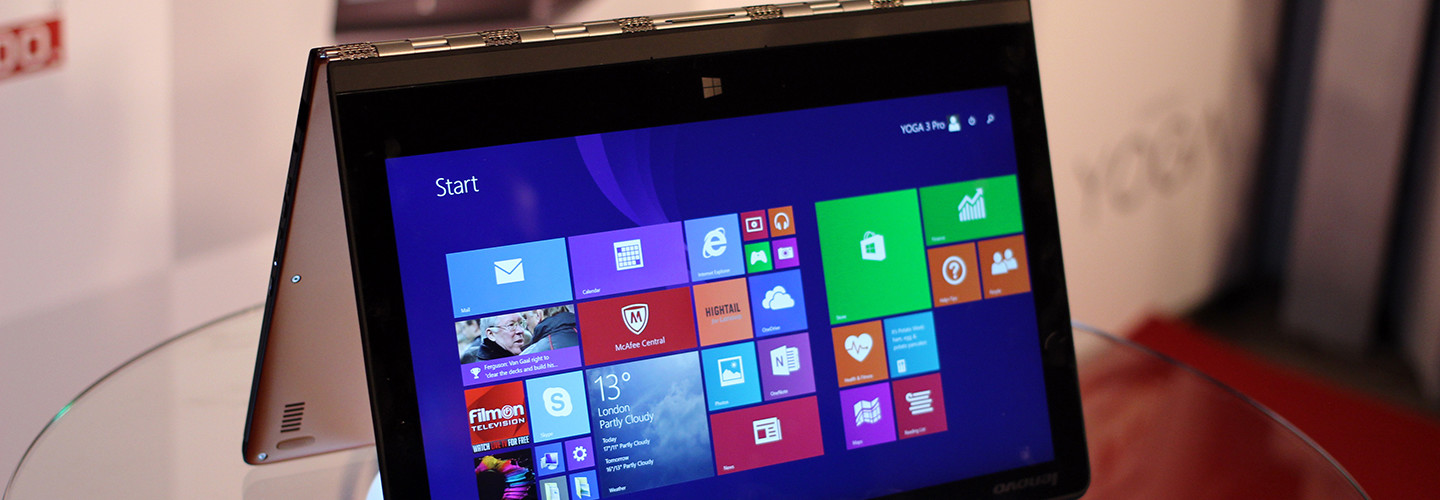Tomorrow’s PC Will Be Ultraportable
The PC is not dead, it’s just evolving. That’s the message conveyed in a recent report from technology research firm ABI Research, which found that despite the sense that notebook PCs are fading away in favor of smartphones and tablets, the PC market is actually going strong.
In the years ahead, writes ABI, ultraportable PCs and Chromebooks will see sales increases, while notebook sales are expected to decline. The shift toward ultraportable devices will give businesses of all kinds — especially small businesses — greater choice, thus providing users more flexibility to get their work done outside of the office, according to the research firm.
The Shift to Ultraportable Devices
According to ABI, in 2015 there were 163 million global shipments of notebook PCs, including 129.7 million traditional notebooks, 27.1 million ultraportable PCs and 6.2 million Chromebooks.
The research firm expects notebook shipments to decline by about 3 percent this year, to 126.1 million; ultraportable shipments to jump about 10 percent, to 30 million; and Chromebook shipments to rise about 22 percent; to 7.6 million.
By 2021, ABI predicts, the traditional notebook drop-off will continue, with just 116.3 million notebooks shipped; by contrast, ultraportable shipments that year are predicted to rise to 41.2 million and Chromebook shipments to 11.6 million. That’s a six-year increase of more than 50 percent for ultraportables and a whopping 87 percent for Chromebooks.
“There is a lot more specialization, a lot more personalization that can be done,” says Jeff Orr, research director at ABI, who told BizTech that the expected sales increase of nontraditional notebooks will offer businesses more choice when they are procuring PCs and setting them up for users. “You can ask the individual, based on [their] role in the organization, ‘What is the best solution?’”
Until very recently, Orr says, ultraportable PCs and two-in-one devices actually commanded the highest prices in the notebook category because of their design and versatility.
However, Intel’s Skylake processing architecture, which the chipset giant introduced last September, has allowed ultraportable PC makers to produce less expensive devices. Orr notes that the new Intel processors have allowed companies that have not been traditional PC suppliers — many based in China and Taiwan — to make lower-cost ultraportables for the U.S. market and markets worldwide. Orr says he expects many such devices to be launched between now and the start of the back-to-school season in late summer, with price tags that are 20 to 25 percent lower than earlier generations of ultraportables.
More Flexibility for Work Outside the Office
Orr notes that ultraportable devices — which often come in the form of two-in-ones that can serve as both a notebook with a full keyboard and a detachable tablet — will not be the best solution for everyone. For example, illustrators and photo editors, or anyone who needs a robust productivity system, will likely find a desktop PC setup to still be the optimal choice.
“The ultraportables are becoming increasingly important for those who are moving about,” Orr says, citing examples such as local insurance agents sent out to investigate claims, or a small business with a group of managers who move around to multiple locations. Those types of companies can benefit from giving their employees devices with full keyboards that also have the mobility of a tablet, he says.
The push toward ultraportables does not mean that small businesses are devoid of resources or capabilities to buy to powerful or versatile computing solutions. “It means they can have the same capability and same value that larger organizations have access to,” he says.
Orr thinks Chromebooks will likely continue to be more popular with educational institutions than businesses.
How are these ultraportable PCs going to change how work gets done? “There will be an opportunity to have computing capability in more places over more of the work day than what may be accomplished today,” he says.
Smartphones and tablets, Orr predicts, will only replace notebooks in a small number of use cases; for example, when the amount of information being viewed or sent is small, and only for workers comfortable with that form factor.
There are numerous types of workers who will benefit from ultraportables as they replace paper and clipboards, Orr says, including freight and logistics managers checking orders, or a construction foreman on a job site looking to approve plans or materials.
“The digitization of those jobs is a huge opportunity,” says Orr.








